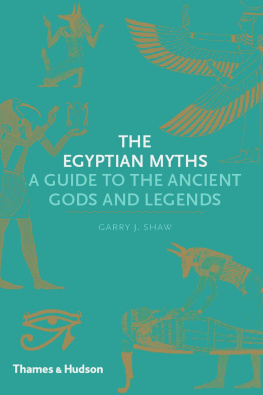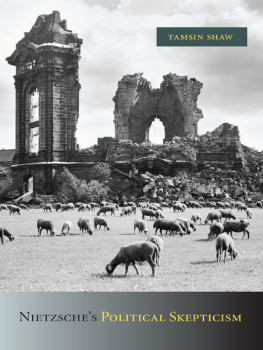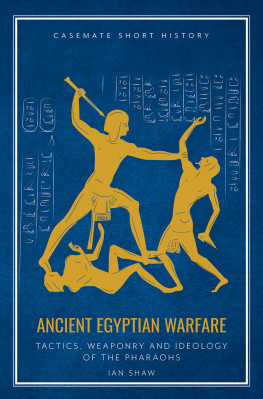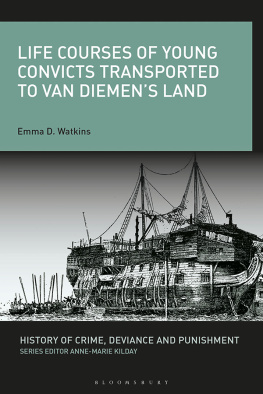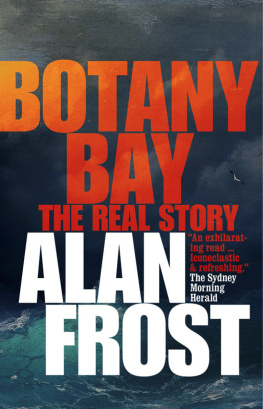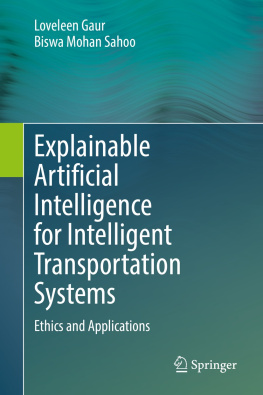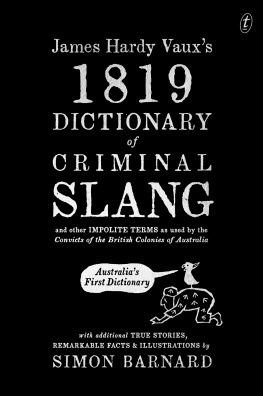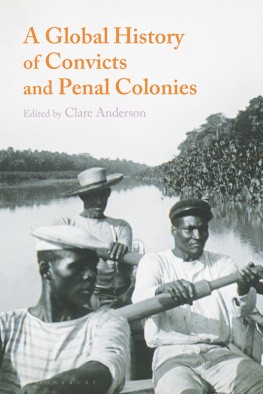
CONVICTS AND THE COLONIES
by the same author
THE STORY OF AUSTRALIA
CONVICTS
AND THE COLONIES
A Study of Penal Transportation
from Great Britain and Ireland
to Australia and other parts
of the British Empire
A. G. L. SHAW
Professor of History
Monash University, Victoria
formerly Senior Lecturer in History
University of Sydney
MELBOURNE UNIVERSITY PRESS
First published 1966 by
Faber & Faber Ltd, London
First Melbourne University Press edition, in paperback, 1977
Reprinted 1978, 1981
Printed in Hong Kong by
Silex Enterprise and Printing Co., for
Melbourne University Press, Carlton, Victoria 3053
U.S.A. and Canada: International Scholarly Book Services, Inc.,
P.O. Box 1632, Beaverton, OR 97075
Great Britain, Europe, the Middle East, Africa and the Caribbean:
Eurospan Limited, 3 Henrietta Street, London WC2E 8LU
This book is copyright. Apart from any fair dealing for the purposes of private study, research, criticism or review, as permitted under the Copyright Act, no part may be reproduced by any process without written permission. Enquiries should be made to the publisher.
Alan George Lewers Shaw 1966
National Library of Australia Cataloguing in Publication data
Shaw, Alan George Lewers, 1916 .
Convicts and the colonies.
Index.
First published, London: Faber and Faber, 1966.
Bibliography.
ISBN 0 522 84114 7.
1. Penal Colonies, British. 2. Convicts AustraliaHistory.
3. Australia Exiles. I. Title.
365.30994
Contents
Tables
Cost of Convicts, N.S.W., 17861800
Distribution of Male Convicts, N.S.W., 18141820
Cost of Convicts, N.S.W. and V.D.L., 18011821
Convict Shipping Disasters
Convict Ships, Statistics of Voyage
Freight charges of Convict Ships, 17911836
Percentage of those convicted who were transported, 18111848
Corporal Punishment, N.S.W. and V.D.L., 18301837
Distribution of Convicts, N.S.W. and V.D.L., 18271836
Cost of Convicts, N.S.W. and V.D.L., 18271836
Convicts in V.D.L., 18381846
Labour in V.D.L., 18451853
Numbers Transported, 17881868
Every portrait that is painted with feeling is a portrait of the artist, not of the sitter. The sitter is merely the accident, the occasion. It is not he who is revealed by the painter; it is rather the painter who... reveals himself.
O SCAR W ILDE
Preface
The working of the system of convict transportation to Australia has proved a subject far more complex and more extensive than it appeared when I began to study it in 1950. Even though it had to be laid aside for five years owing to my illness and other pressing work, it has taken longer than I expected and is even yet incomplete. Although I have reached a number of conclusions they need to be confirmed (or perhaps refuted) by detailed investigations both of the districts from which the convicts came, and of those they were sent to; for it is only from such studies that the whole truth can emerge, and at the moment these are extremely rare. Three works of research have nonetheless been of great value to me. First that of Mr. Brian Fletcher, of the University of New South Wales, on small-scale agriculture in the early days of New South Wales throws the light of careful scholarship on the activities of the first emancipist farmers in the colony. Secondly, the study by Miss Anne McKay (now Mrs. Rand) of the University of Tasmania of the assignment system in Van Diemens Land under Lieutenant-Governor Arthur provides an important examination of his policy and its administration, even though its generality, like that of this work, demands the further local studies of the type of which I have been speaking. Last, is the examination of convict origins by Dr. L. L. Robson of the Australian National University, Canberra, made from a sample of one in twenty of all those transported. I was extremely gratified to find Dr. Robsons conclusions, reached by a statistical study of information on the convict indents, were very similar to my own. Nonetheless it is no criticism of this to say that once again further detailed studies of particular areas and groups are needed to fill out the picture sketched by both of us, and hope some of the next generation of Ph.D. students may be persuaded to tackle them, and also to investigate in more detail some of the economic implications of the transportation system.
I am indebted to the Nuffield Foundation for enabling me to begin this work by the grant of a Fellowship in 19501. Since then many others, both officials and friends, have given me most valuable assistance. To librarians and archivists, I have been most troublesome in London in the Public Record Office and British Museum, in Dublin in the State Paper Office, in Sydney in the Mitchell Library and in Hobart in the State Archives where Mr. Peter Eldershaws advice and assistance were invaluable; and there are many others. Mr. Brian Dickie helped me in my searches among the convict indents and others whose advice has enabled me to improve the manuscript are innumerable; but I should like especially to thank Dr. Robson and Mr. Fletcher for their ready help, the late Mr. John Forsyth of Avalon, New South Wales, for his valuable criticism, and of my colleagues at the University of Sydney, Jules Ginswick, Dr. Hazel King, Marlay Stephen and Professor John Ward for their wise counsels. To all these, and many others, I am most grateful, and especially to my wife, who if not a professional critic, fulfilled what is an even more important function in sustaining morale by encouragement in times of stress.
Sydney A. G. L. S haw
1964
Note on References
In addition to a list of manuscript sources, parliamentary papers and newspapers, a select bibliography will be found on p. 369. This includes books, articles and unpublished theses, and gives full publication details. For any work which is listed there, in the footnotes there is reference only to the authors name, or to a short identifying title where it is needed. The titles of works on peripheral subjects which are not listed in the bibliography are given in full in the footnotes.
The despatches between the secretaries and under-secretaries of state and the colonial governors will all be found in their respective series in the Colonial Office papers. Most of those referred to here have been printed, either in the Historical Records of Australia , series i for New South Wales to 1847, and series iii for Tasmania to 1827, or in Parliamentary Papers . To save what overall amounts to very considerable space, I have not except in special circumstances referred to the printed collections, where the despatches may easily be found by reference to the date of writing.
The following abbreviations have been used:


